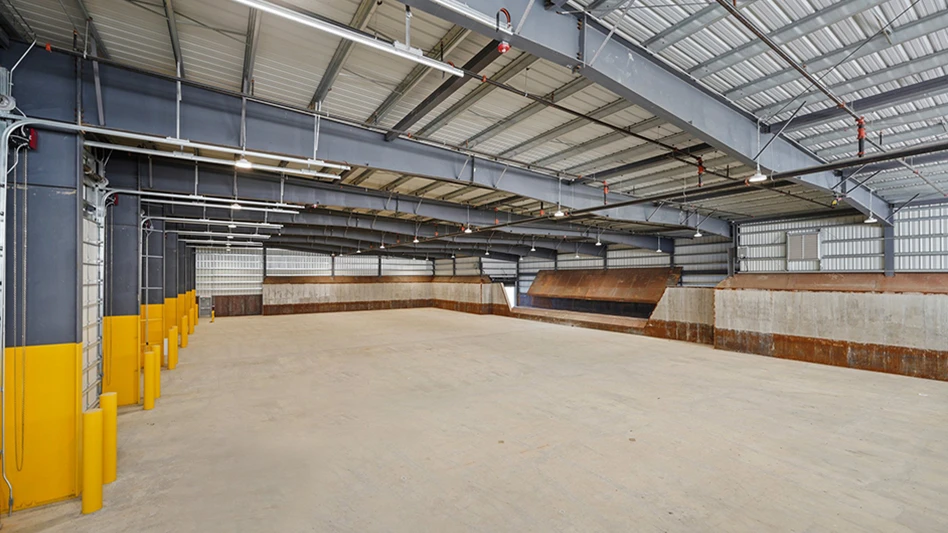
NFL scores zero-waste win at Super Bowl LII
The NFL, in partnership with PepsiCo., Purchase, New York; Aramark, Philadelphia; U.S. Bank Stadium, Minneapolis; SMG; West Conshohocken, Pennsylvania; and the Minnesota Sports Facilities Authority, Minneapolis, announced that 91 percent of all trash generated at Super Bowl LII was recovered through composting, recycling and reuse. The landmark project marks the highest diversion rate achieved at the Minnesota Vikings’ U.S. Bank Stadium and at any previous Super Bowl.
Nearly 63 of the 69 tons of game day waste generated was recovered through recycling or donation for reuse (62 percent) and composting (29 percent). Recovering waste through composting and recycling reduces waste disposal costs and provides several environmental benefits including reduction of landfill use and reduction of the greenhouse gas generated by the landfill process.
U.S. Bank Stadium partners, including the Minnesota Sports Facilities Authority, stadium operator SMG and Aramark, kicked off the effort to achieve a zero-waste operation in 2017 and were joined by the NFL and PepsiCo. in the lead-up to Super Bowl LII.
“SMG is always striving to raise industry standards through our operation at U.S. Bank Stadium, and our commitment to sustainability is no different. In our first season, we produced a waste diversion rate of 20 percent. Over the course of our second season, our team increased that diversion rate to 91 percent,” Patrick Talty, general manager at U.S. Bank Stadium, says. “Developing a successful and long-term zero-waste program has always been our goal. The diversion improvement we have seen to date is rare in the world of facility management and is a testament to the dedication of all of our stadium partners.”
Prior to game day, PepsiCo. launched the Rush2Recycle campaign to show fans how to make recycling fun and easy in the stadium and at in-home Super Bowl parties across the country. Fans attending the Super Bowl were greeted by a team of uniformed zero-waste ambassadors who helped identify the correct bins for recycling, composting and waste-to-energy.
“To tackle waste and boost recycling rates, each of us needs to do our part,” Roberta Barbieri, PepsiCo.’s vice president of global environmental sustainability, says. “While we’re working to make PepsiCo.’s packaging increasingly sustainable and investing in recycling programs in communities around the world, we also want to find new ways to make it fun and simple for consumers to participate, like Rush2Recycle.”
Critical to hitting the initiative’s goals was removing items from stadium inventory that could not be either recycled or composted. Aramark, the food and beverage partner for U.S. Bank Stadium, replaced nearly its entire inventory of food containers, service products and utensils with alternatives that were compostable.
Other pregame steps were essential to achieving the goal. U.S. Bank Stadium, working with Recycle Across America, designed all illustrated signs for the stadium’s new three-bin waste stations to show fans exactly how to sort items.
Recycling and compost bins were made larger and more accessible, while trash bins were made much smaller, encouraging fans to make the right choices for disposing items. In addition, a comprehensive LEED-certification waste audit was performed in October 2017 to identify specific materials for recovery in the stadium waste stream. A “zero-waste trial run” was performed at a December 2017 Minnesota Vikings home game to encourage fans to properly dispose of waste and to refine practices.
After the game, the SMG team sorted all fan-generated waste into the correct waste compactors. The waste hauling partners then collected and provided weight tickets at each destination including the recycling facility, the composting facility and the waste-to-energy facility. This data was reviewed by SMG and combined with the reuse and donation data collected by the NFL from their community partners to get the final numbers.
Get curated news on YOUR industry.
Enter your email to receive our newsletters.

Explore the April 2018 Issue
Check out more from this issue and find your next story to read.
Latest from Waste Today
- ReMA board to consider changes to residential dual-, single-stream MRF specifications
- Miller Environmental Group Inc. appoints CEO
- DPI acquires Concept Plastics Co.
- Laurel Mountain Capital announces investment in 5280 Waste Solutions
- Cielo investor requests annual meeting
- WIH Resource Group celebrates 20th anniversary
- NWRA: NIOSH cuts a step in the wrong direction
- Valicor Environmental services acquires Affordable Waste Management





